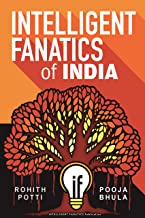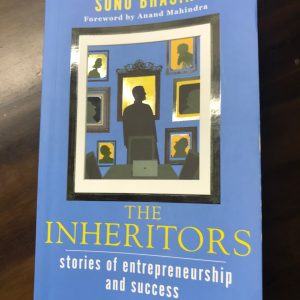In Intelligent Fanatics of India, authors Rohit Potti and Pooja Bhula make an interesting point about the human race. What is it that has led to humans being on top of the food chain? Genetic evolution does not provide a very clear answer to this. The authors delve into theories of human supremacy and elicit a refreshingly different viewpoint. They state that human ability to cooperate effectively in large numbers has played a pivotal role in our domination of the world. Coupled with the ability to create an enduring culture, some individuals have utilized this human advantage. As a result, they have created enduring and extremely successful organizations. These individuals are intelligent fanatics, a term first used by Charlie Munger. The book, published by Intelligent Fanatics Publication, focuses on this special group of people and what differentiates them.
Within the context of this framework, the authors draw out constructs that capture the essence of an intelligent fanatic. They demonstrate this concept in action through a curated mix of case studies. These include Indian businesses, both old and new, from varied industries.
Each case study is unique in that it discusses the specifics of a particular business. The interesting aspect herein is how they draw out factors that contributed to the growth of that particular business. Where possible they describe corresponding theoretical research to illuminate the soundness of that specific business practice. The authors tie up each case study to the overall theme of “enduring culture”.
The reader will come across many familiar names. These are almost household names in India. When one knows the backstory of these brands, there is a new-found respect for them. For example, most people are loyalists of Naturals Ice-cream. It is inspiring to observe the humble roots of Raghunandan Kamath and how his experiences shaped his life and the business.
One of the things that readers look out for in books is how it can help them in their lives. From this perspective, the book is packed with little instances, lessons and observations from the myriad case studies. As the reader goes through these, almost reliving the lives of the entrepreneurs they are reading about, they will find a nugget or so that will resonate deeply with them. How did Naturals Ice cream leverage technology in a cost-effective manner to scale up? How can a quick-fix model such as the one adopted by Anita Dongre help a business to be agile? In what manner did the trait of anti-fragility help Anita Dongre through tough times?

One of the advantages of reading these examples is that of context. When one looks at the evolution of the business against the context and background of the times it was growing in, one can also make the very important links. For example, we all know about Furtado’s India. This is a well-known local music instruments business. How did John Gomes, who was at the helm, drive it in the troubled waters of the License Raj? And then, with the liberalization of 1991, the company once again rose up to the times and propelled the business further. For an observant reader, this case has much to tell about the qualities that an entrepreneur needs in order to stay afloat and rise in troubled waters and with changing times. Our current scenarios may be different, but the challenges remain the same.
As illustrated by the case studies in the book, each business and each business owner had a unique set of circumstances to deal with. In their growth journey, each adopted equally unique strategies that were relevant for them at that point. What the book does is dissect these strategies and connect them with the broad principles that define intelligent fanatics.
The authors examine the culture of an organization and how intelligent-fanatic led organizations build and retain this culture. The conclusion hence draws on all the lessons from the individual case studies and attempts to find out the threads that bind them together. One of the key things to look out for in this book is connections. The authors analyse and connect principles of business, concepts from famous thinkers and writers as well as actual case studies in order to come up with a philosophy of their own. As you read the book, pause and take a critical look at these connections yourself, and maybe make your own. That is indeed the way forward!
Want to know more about Intelligent fanatics? Click here.







